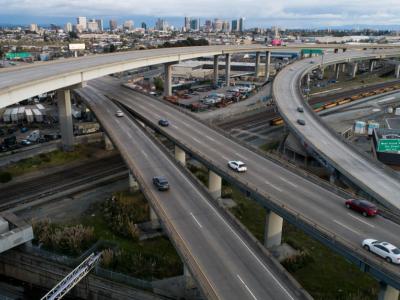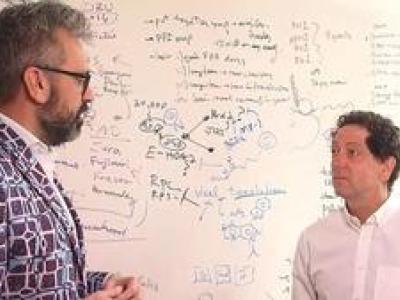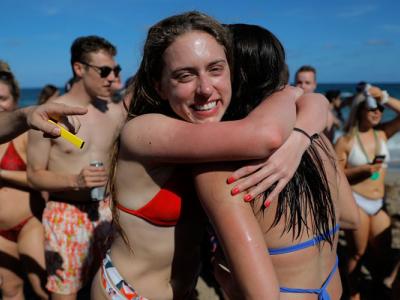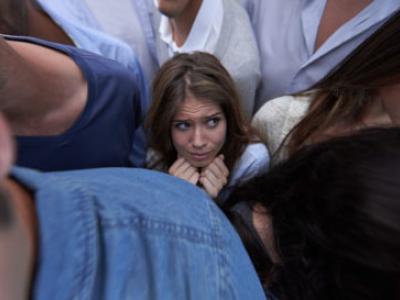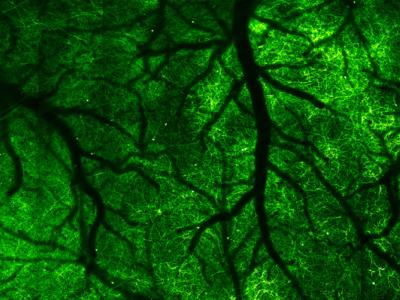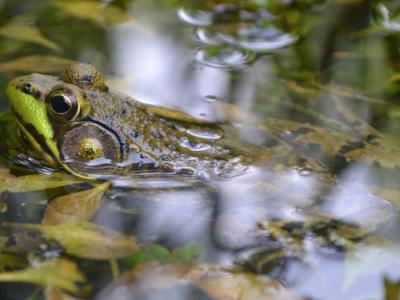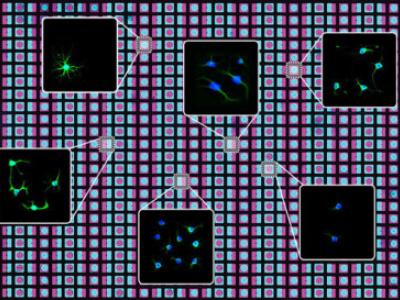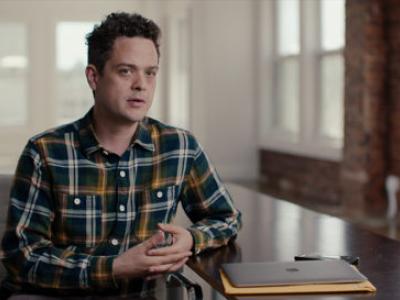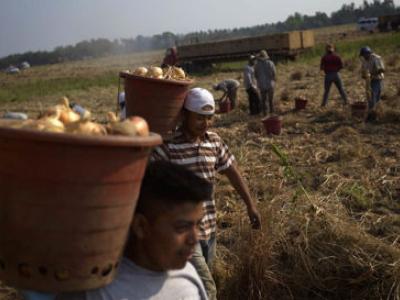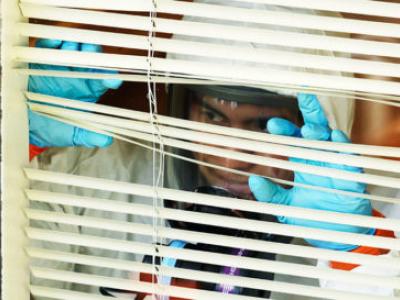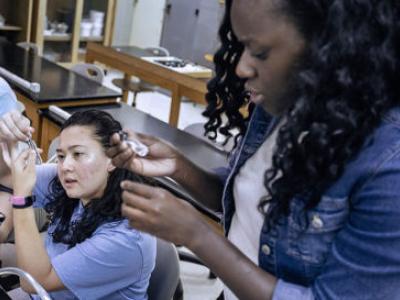Fewer vehicles on the road and the slowing world economy has lead to blue skies over the world including the Bay Area, China, and Italy.
Research News
Learn more about UC Berkeley's researchers and innovators.
Showing 1425 - 1440 of 3512 Results
The international team of researchers is testing an unusual new approach to identify potential antiviral drugs with proven efficacy to treat SARS-Cov-2 infections. Given the world crisis, the strategy of testing known/approved drugs could help reduce the numbers of deaths in the near term while the world health community battles the epidemic.
Many young adults are defying the 6-feet-apart social distancing rules. What causes certain people to stick to their beliefs and act with skepticism despite overwhelming contradictory evidence? Berkeley News asked Celeste Kidd, a UC Berkeley computational cognitive scientist who studies false beliefs, curiosity and learning.
The University of California, Berkeley, and the University of Illinois at Urbana-Champaign (UIUC) are the headquarters of a bold new research consortium established by enterprise AI software company C3.ai to leverage the convergence of artificial intelligence (AI), machine learning and the internet of things (IoT) to transform societal-scale systems.
The mass extinction at the end of the Permian Period 252 million years ago — one of the great turnovers of life on Earth — appears to have played out differently and at different times on land and in the sea, according to newly redated fossils beds from South Africa and Australia.
Excessive worry about COVID-19 is becoming a mental health pandemic unto itself. But when is anxiety useful, and when is it destructive? At UC Berkeley, Sonia Bishop, associate professor of psychology and cognitive neuroscience, has studied anxiety and how it affects decision-making.
Electrical and chemical signals flash through our brains constantly as we move through the world, but it would take a high-speed camera and a window into the brain to capture their fleeting paths. University of California, Berkeley, investigators have now built such a camera: a microscope that can image the brain of an alert mouse 1,000 times a second, recording for the first time the passage of millisecond electrical pulses through neurons.
Though biodiversity is in crisis globally, amphibians in particular face a variety of threats. One such threat comes from pathogens like the amphibian chytrid fungus Batrachochytrium dendrobatidis (Bd). Bd causes chytridiomycosis, a disease that research indicates contributes to the decline of some amphibians. New research, however, now calls into question some prior evidence that links the widespread pathogen to hundreds of amphibian declines.
Like humans, cells are easily influenced by peer pressure.
Take a neural stem cell in the brain: Whether this cell remains a stem cell or differentiates into a fully formed brain cell is ultimately determined by a complex set of molecular messages the cell receives from countless neighbors. Understanding these messages is key for scientists hoping to harness these stem cells to treat neurological conditions like Alzheimer’s or Parkinson’s.
As a reporter with the Los Angeles Times, Garrett Therolf discovered that Los Angeles County’s system to protect abused children was failing: Case workers did not remove children from homes with histories of violence, and children were dying at the hands of their own parents every single year.
While health leaders and policymakers race to limit the spread of COVID-19, the emerging crisis is having a dramatic impact on millions of healthy Americans — in restaurants, offices, taxicabs, classrooms and other places where they work.
A legitimate abundance of coronavirus caution has sent tens of millions of schoolchildren home for the foreseeable future, leaving families scrambling to navigate daily life without the help of an established routine.
So, how to cope with household cabin fever that could last weeks, and even months?
In a new interview, Swartzberg underscores the fact that — in part due to poor leadership by the executive branch of our government, the Centers for Disease Control (CDC) and the Food and Drug Administration (FDA), which failed to deliver adequate testing on time — we still don’t have enough data on the virus to really know how widespread the disease will ultimately become, or how long these drastic social distancing measures will last. But, he says, preventing transmission through hygiene and limited social contact remain crucial to avoid overloading our hospital system.
You don’t have to remind David Levine, UC Berkeley professor of business administration, to carry hand sanitizer and wash his hands thoroughly with soap. But why do many of us — from children to adults — lack these habits, even in a pandemic?
For lovers of high-fidelity audio, or for those who just want the coolest new thing, revolutionary, distortion-free earphones based on high-tech graphene will soon be coming your way, courtesy of basic research at UC Berkeley and Berkeley Lab.
High schools in Los Angeles that have received new funding under California’s ambitious 2013 education reform achieved positive results, with clear improvement in student achievement and teacher working conditions. But after five years and $5 billion in fresh funding, educators failed to narrow wide racial disparities in learning, according to a new study by researchers at the University of California, Berkeley.

